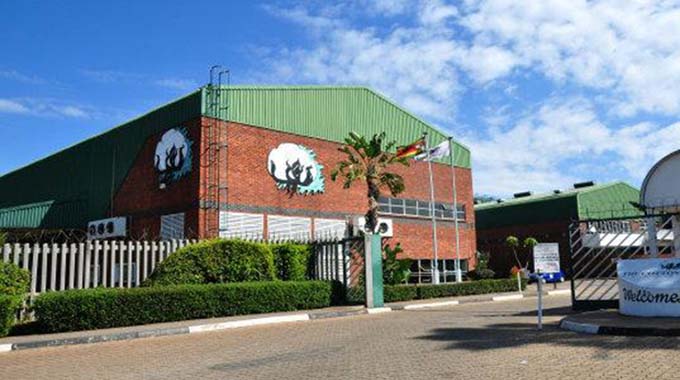
Martin Kadzere and Michael Tome
THE Cotton Company of Zimbabwe (Cottco) has paid off its $56 million debt to Zimbabwe Asset Management Company (Zamco), effectively setting aside prospects for debt to equity swap.
Cottco is one of the companies whose debt was taken over by Zamco, a special purpose vehicle created by the Reserve Bank of Zimbabwe to rescue debt ridden local firms and to hive off bad loans that were threatening the stability of banks.
Initially, Cottco and Zamco were working on a scheme to convert the former’s debt to equity, which could have seen the asset manager assuming 95 percent shareholding.
However, following successive years of improved production, buoyed by State sponsored programmes supporting small-scale farmers and improved foreign currency inflows, the country’s largest cotton financier has managed to settle its obligations.
“We are grateful; the intervention of Government has helped to save the industry at large and the company in particular,” said Cottco managing director Mr Pious Manamike.
“The programme is bearing fruit as evidenced by the ability of the company to pay legacy debts.
“We are now operating on a very strong footing and we are looking forward for better times.”
Zamco chief executive Mr Cosmas Kanhai confirmed to The Herald Finance & Business that Cottco had made substantial payments, but declined to disclose the amount.
Cottco is administering the Presidential Free Input Scheme, a programme meant to support mostly vulnerable farmers.
Since its inception in 2015, the programme helped lifting production to 143 000 tonnes last year, from 28 000 tonnes in 2015, the lowest output in nearly two decades.
Production, however, fell to about 69 000 tonnes this year due to a drought that has also affected output of other crops such as maize. Export earnings from ginned cotton, also known as lint rose to US$85 million last year from US$4,5 million in 2015.
Meanwhile cotton growers in parts of Mashonaland Central Province have applauded Cottco for providing tillage services at a time when most of them lost their cattle due to drought and diseases, but appealed for speed disbursements of inputs.
Cotton growers in Chiweshe and Mount Darwin said this would ensure timeous planting and boost prospects for better yields since they would take advantage of early rains. The cotton planting season stretches from October to November in the middle and high-veld areas and between November to December in the low-veld region.
“The inputs are coming but the authorities should speed up the process since the season is just close, Ms Enara Kabvumbi, a farmer from Mt Darwin said recently.
“We also appeal to Cottco to avail more tractors since we lost our animals due to foot and mouth.”
Indications are that many farmers are signing up for the Presidential Free Input Scheme from traditional crops like tobacco and maize whose inputs prices have shot.
In Chiweshe, a significant hectarage of land had been tilled. “The tilling program is important considering that many of us here do not have cattle for ploughing, said Ronica Dzumbunu in Gweshe, Chiweshe. “We appreciate that our land has been tilled on time but we want inputs to be distributed fast so that we do our preparations on time.
Cottco business unit manager for Mt Darwin Mr Washington Marongwe said there had been overwhelming response to the scheme given high price for inputs of other crops.
“Farmers are very keen to grow cotton this season; indications are that some farmers are moving away from growing tobacco due to high inputs prices,” said Mr Marongwe.
